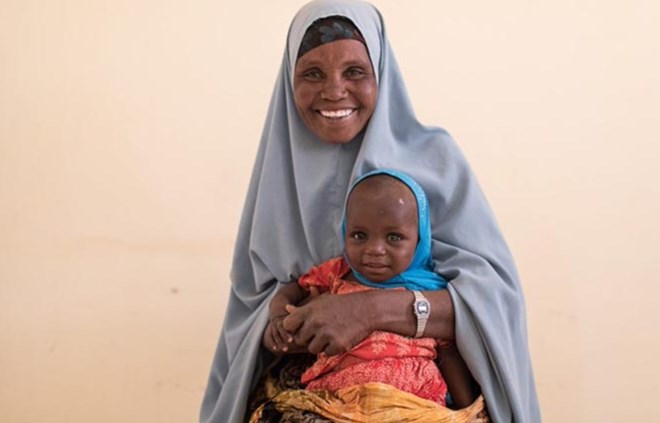A new study has found that Somali women undergoing cesarean sections under spinal anesthesia face a significantly high risk of dangerously low blood pressure.
The research, published in BMC Pregnancy and Childbirth, was conducted at the Mogadishu Somalia Turkey Recep Tayyip Erdoğan Training and Research Hospital — the country’s largest referral facility.
What is the Link Between Cesarean Delivery and Low Blood Pressure?
Spinal anesthesia is the most commonly used method for cesarean deliveries in Somalia.
It is preferred over general anesthesia because it is safer, more affordable, and practical in low-resource settings.
However, one major complication linked to spinal anesthesia is hypotension (a sharp drop in blood pressure), which can cause dizziness, nausea, fainting, and in severe cases, pose life-threatening risks to both mother and newborn.
The study examined 320 women who gave birth between May and July 2024.
Results showed that 78% developed spinal anesthesia–induced hypotension, a rate far higher than those reported in countries such as Ethiopia, Pakistan, and Colombia.
Key Risk Factors Identified
The Somali research team — Asha Abdullahi Barud, Ikran Abdulkadir Ali, Nasra Mohamud Hilowle, Hiba Bashir Hassan, and Iftin Mohamed Osman — highlighted five major factors that increase the likelihood of complications:
- High body mass index (BMI above 25): More than doubles the risk.
- Anemia: Low hemoglobin levels before surgery significantly raise vulnerability.
- Lack of IV fluid preloading: Women who did not receive fluids before surgery were at higher risk.
- Absence of vasopressor medication (ephedrine): Without it, blood pressure was harder to stabilize.
- Normal blood pressure in pregnancy: Surprisingly, women without hypertension were six times more likely to develop hypotension compared to those with high blood pressure disorders.
Global and Local Implications
Research from South Africa has already shown that spinal hypotension is responsible for over half of anesthesia-related maternal deaths.
With Somalia recording a 78% complication rate, the findings highlight the fragile state of maternal health in the country, where even routine cesarean deliveries can become life-threatening.
Read also: How Somali Women Farmers Turn Hardship Into New Opportunities?
Recommendations:
The study emphasizes the urgent need for preventive measures to reduce maternal risks.
Key recommendations include:
- Preoperative screening to identify at-risk mothers.
- Improving hemoglobin levels in anemic women before delivery.
- Routine use of IV fluid preloading.
- Prophylactic administration of vasopressor medication such as ephedrine.
These steps could significantly lower the rate of spinal anesthesia–induced hypotension and improve outcomes for Somali mothers and babies.
A Call for Stronger Maternal Healthcare
Somalia already struggles with one of the highest maternal mortality rates in the world. Limited medical resources, lack of specialized staff, and growing healthcare demands continue to put mothers at risk.
The authors stress that improving hospital protocols, ensuring access to essential medications, and strengthening maternal healthcare systems are crucial for protecting women during childbirth.
As Somalia’s population grows, addressing complications like spinal hypotension becomes vital to reducing maternal deaths and safeguarding newborn lives.








